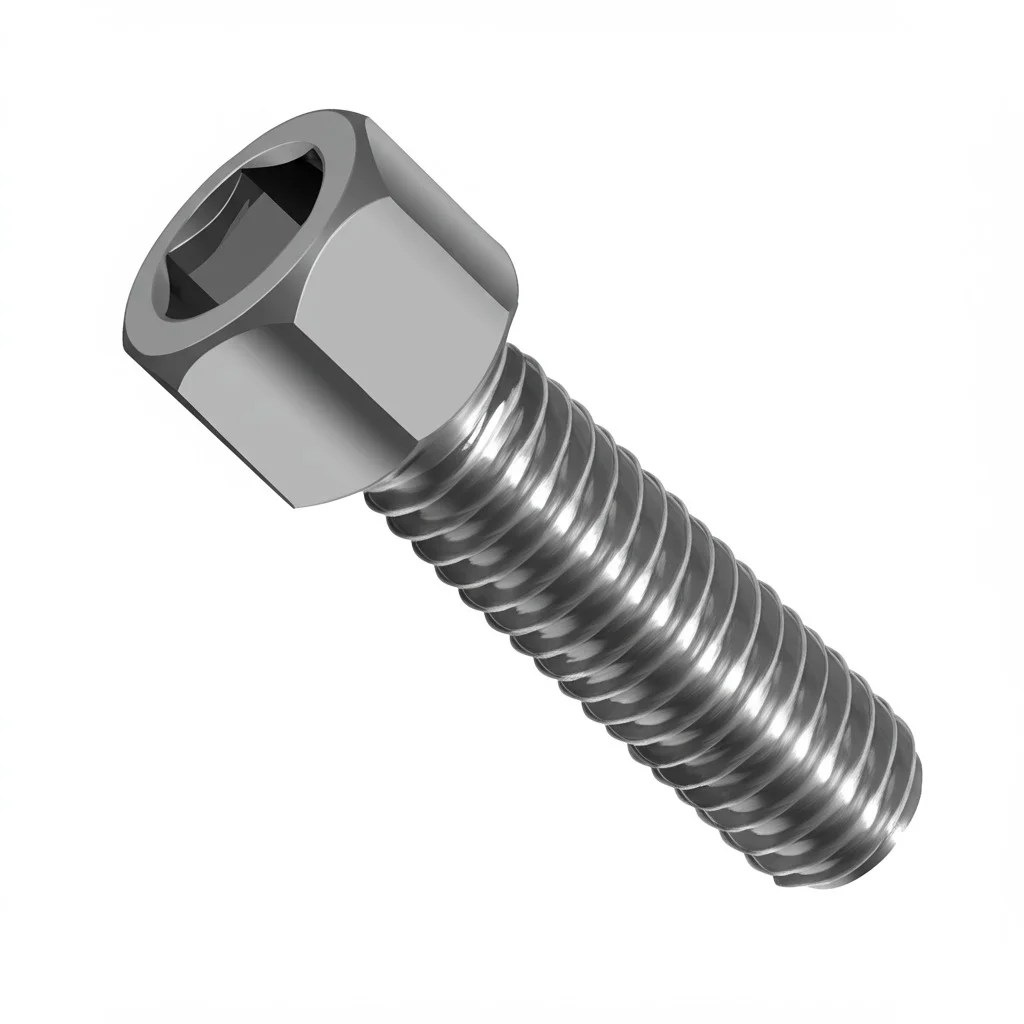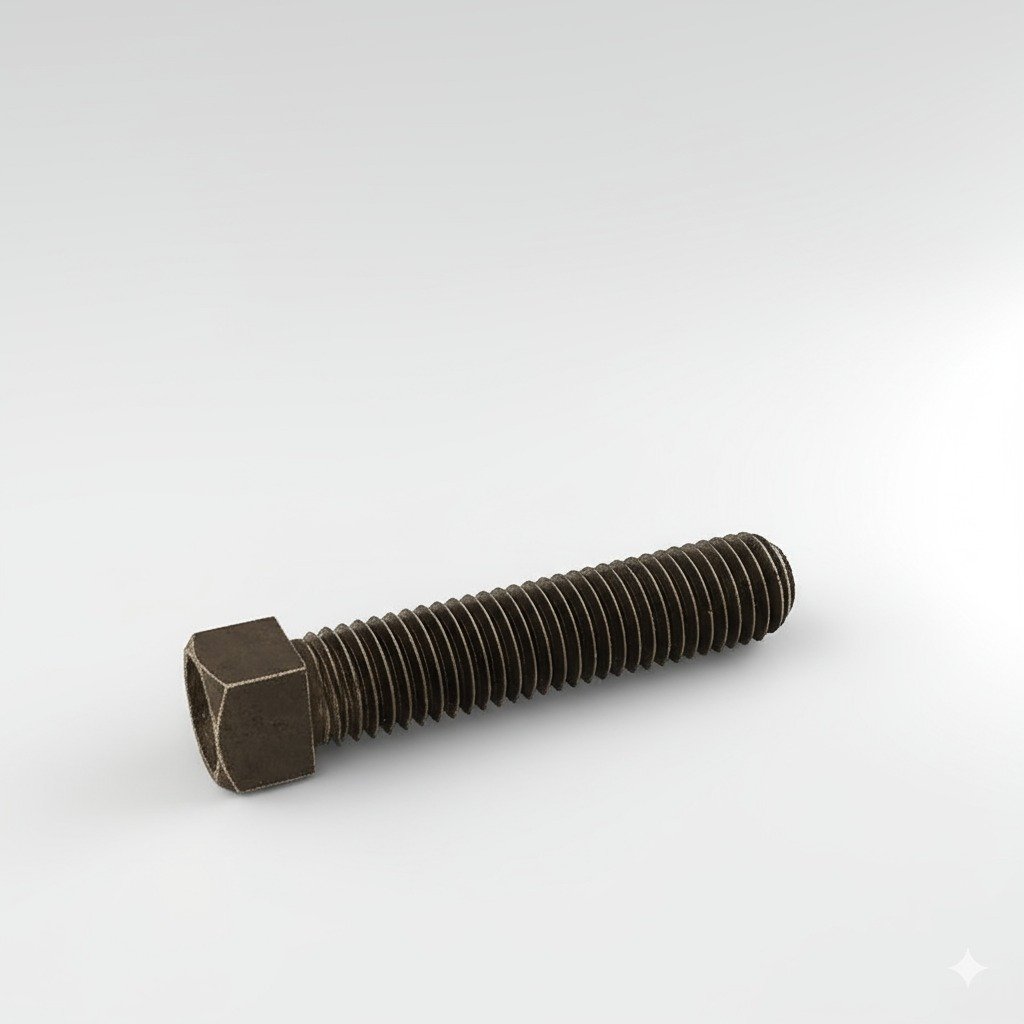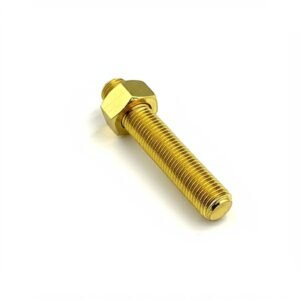By Nicolás Longo
(As an Amazon Associate we earn from qualifying purchases)
Bolt Properties: An In-Depth Look at Strength, Materials, and Coatings
Understanding the intrinsic properties of bolts is essential when choosing the right fasteners for your projects. In this detailed analysis, we answer critical questions such as are bolts stronger than screws and explore why bolts can sometimes outperform even welds in certain applications. This guide covers the strength comparison between bolts, screws, and welds; investigates the magnetic characteristics of bolts; and reviews various bolt coatings including cadmium plated bolts, galvanized bolts, zinc bolts, ss fasteners, bolts zinc plated, and xylan coated bolts. By diving into these technical details, professionals can make better decisions in industrial, construction, and mechanical settings.


Each section is designed to provide relevant data, fun facts, and insights backed by reputable sources. Whether you are an engineer, a contractor, or a DIY enthusiast, this comprehensive guide delivers the knowledge needed to decide if, in fact, are bolts stronger than screws and what properties make them indispensable. With comparisons based on research and expert recommendations, you will gain a thorough understanding of bolt properties that go beyond conventional wisdom.
Strength Comparison: Bolts vs Screws vs Welds
When assessing fastener performance, one common query is: are bolts stronger than screws? The answer depends on several factors such as material, design, and application. Bolts, by design, distribute load over a larger area and are typically subjected to higher tensile forces compared to screws. Their robust construction makes them ideal for heavy-duty uses where screws might fail.
- Bolts: Known for high tensile strength and shear resistance, bolts are manufactured to precise standards such as those outlined in ASTM and ISO. Research shows bolts are engineered with a focus on durability, making them the preferred choice for structural connections (Source: Engineering Toolbox).
- Screws: Screws offer ease of installation and fastener versatility; however, they generally provide less clamping force. When comparing are bolts stronger than screws under high loads, bolts often come out ahead.
- Welds: Although welding can create solid bonds, weld quality can vary with technique and conditions. Studies have indicated that properly torqued bolts sometimes offer more predictable performance than welds in dynamic applications (Source: NIST).
Many engineers agree that for applications involving cyclical loads and thermal stresses, bolts provide a more reliable solution than screws or welds.
What Makes a Bolt Magnetic?
A frequent question is: are bolts stronger than screws? Alongside mechanical strength, other physical properties such as magnetism are crucial for certain applications. Not all bolts are magnetic; their magnetic properties depend on the material used. Steel bolts are typically magnetic because of their iron content, whereas stainless steel fasteners, depending on the alloy composition, may not attract magnets.
- Magnetic Behavior: The phenomenon of magnetism in bolts is determined largely by the microstructure of the metal. Ferritic stainless steels, for instance, exhibit strong magnetic responses, whereas austenitic stainless steels are mostly non-magnetic.
- Practical Implications: The magnetism of bolts is a critical consideration in electronics assembly and certain medical equipment designs where interference can be an issue. Engineers must decide if the property of magnetism influences the performance of a fastener in a specific environment.
- Fun Fact: Did you know that some specialized alloys are designed to balance corrosion resistance and magnetic permeability? This duality can be especially important in sensitive equipment.
The understanding of why are bolts stronger than screws sometimes extends into discussions about additional material properties like magnetism, thereby influencing the overall selection process.
Bolt Coatings: Protection and Durability

Bolt coatings play a vital role in enhancing durability by providing protection against corrosion, wear, and environmental degradation. In this section, we examine various coating types, including cadmium plated bolts, galvanized bolts, zinc bolts, ss fasteners, bolts zinc plated, and xylan coated bolts. The coating technology applied to bolts not only extends the life of the fasteners but also optimizes their performance under challenging conditions.
- Cadmium Plated Bolts: Cadmium plating offers excellent corrosion resistance, particularly in harsh chemical environments. However, due to environmental concerns, its use is being phased out in some regions.
- Galvanized Bolts and Zinc Bolts: Galvanization provides a zinc coating that protects bolts from rust. This method is widely used in outdoor and maritime applications. Galvanized bolts are proven to have substantial longevity in moist environments.
- SS Fasteners: Stainless steel fasteners are renowned for their resistance to corrosion and appealing aesthetics. They are particularly popular in the food processing and medical industries.
- Xylan Coated Bolts: Xylan coating is a modern alternative that offers superior resistance to salt and chemicals compared to traditional coatings. This coating can significantly extend the service life of bolts in aggressive environments.
Given these varieties, it is important to understand that the decision regarding which coating to use depends on the operating environment and the specific demands of the application. For example, when asking are bolts stronger than screws, it is crucial to consider not just the physical strength but also the endurance provided by protective coatings.
Key Data and Research Insights
Reliable data underscores the importance of selecting bolts based on both strength and protective coatings. Recent research indicates that bolts with advanced coatings, such as xylan, can experience up to 30% less corrosion over a period of five years compared to those with traditional zinc coatings (Source: Corrosionpedia). Additionally, expert studies reveal that in environments with high salt exposure, galvanized bolts maintain their integrity and strength longer than their uncoated counterparts.
Comparative analysis shows that:
- Bolts with advanced coatings exhibit significant improvements in durability and lifecycle, thus enhancing overall project reliability.
- Proper maintenance and periodic inspection of coated bolts can prevent potential failures in safety-critical applications.
Industry professionals emphasize that the answer to are bolts stronger than screws must be seen within the broader context of fastener performance under various environmental conditions and load scenarios.
Practical Tips for Fastener Selection
- Assess Environmental Conditions: Evaluate whether your application is exposed to moisture, salt, or chemicals. This will influence the choice among cadmium, galvanized, zinc plated, or xylan coated bolts.
- Consider Strength Requirements: Determine the load and stress factors by consulting engineering specifications and test data. Bolts designed for high tensile strength are often preferred in critical connections.
- Regular Inspections: Implement regular maintenance checks to ensure that coatings have not degraded, which could compromise fastener performance.
- Consult Reliable Sources: Technical documents from ASTM, ISO, and NIST provide comprehensive guidelines on bolt performance. Refer to these documents to validate fastener performance metrics.
These practical tips are essential in ensuring that your selection of fasteners, addressing questions like are bolts stronger than screws, is both informed and effective.
Advanced Analysis and Comparative Evaluations
In high-performance applications, the differences between fasteners can be subtle but critical. Comparing bolts and screws in terms of mechanical properties involves not only the inherent material strength but also the resilience provided by protective coatings and design features. Comprehensive studies have demonstrated that bolts engineered with specific coatings like xylan can outperform traditional fasteners in severe environments.
- Statistical Insight: Analysis by the Journal of Materials Science has provided evidence that modern coating technologies reduce corrosion rates by nearly 25% compared to older methods.
- Expert Recommendations: Engineering experts recommend bolt fasteners for applications that require both high load-bearing capacity and longevity, particularly in industries like construction and aerospace.
- Comparative Data: Detailed comparisons indicate that when addressing the question are bolts stronger than screws, it is found that bolts, when properly coated and maintained, offer more consistent performance under cyclic loads and extreme temperatures.
Moreover, it is essential to consider the overall system design. Bolt strength can vary depending on the quality of both the fastener and its installation process. Measurements of tensile strength, shear resistance, and endurance under cyclic stress are critical parameters. For instance, research conducted by ASTM International shows that advanced bolt coatings significantly enhance fastener reliability, providing measurable benefits in performance.
Incorporating these advanced analyses into your decision-making process ensures you select a bolt system that meets the operational demands of your projects. The integration of qualitative and quantitative insights provides a holistic understanding of fastener performance, specifically addressing queries like are bolts stronger than screws through rigorous, data-driven evaluations.
Enhancing Fastener Durability and Performance
The implementation of high-quality bolt coatings is a major factor in enhancing durability. Selecting the right coating not only protects the bolt from environmental degradation but also extends its operational life. This section offers an exhaustive review of coating options:
- Protective Features of Coatings: Advanced coatings such as galvanized, zinc plated, and xylan coated bolts provide robust barriers against corrosion. Each coating method has its advantages based on environmental exposure and mechanical stress.
- Durability Metrics: Comparative studies indicate that bolts with xylan coatings have a significantly higher resistance to chloride-induced corrosion, making them ideal for coastal installations.
- Maintenance and Inspection: Regular monitoring of bolt integrity, particularly in industrial settings, ensures optimal performance. Maintenance practices are supported by manufacturer guidelines and industry standards.
By understanding the detailed performance metrics and selecting bolts with the appropriate coatings, you make a proactive investment in the longevity and safety of your projects. When evaluating are bolts stronger than screws, it becomes evident that the combination of inherent material strength and advanced coatings is a winning formula.
Final Analysis and Strategic Recommendations
Choosing the right fastener goes beyond mechanical strength alone. It is crucial to consider environmental factors, longevity, and overall system performance. Analytical research and expert insights highlight that bolt performance, especially when enhanced with advanced coatings like galvanized, zinc plated, and xylan coated bolts, can significantly outperform screws and even welds under specific conditions.
Strategic recommendations include:
- Optimize Fastener Specifications: Use data-driven standards to ensure the selected bolts meet the necessary performance criteria.
- Leverage Industry Research: Regularly consult technical publications and industry guidelines to remain updated on emerging coating technologies and material advancements.
- Practical Implementation: Adopt a holistic approach that involves testing, monitoring, and periodic review of fastener performance under real-world conditions.
Adopting these strategies leads to better fastener selection and ultimately minimizes risks associated with fastener failure. The integrated approach to analyzing bolt properties ensures that your projects benefit from the highest levels of durability and operational efficiency.
“As an Amazon Associate we earn from qualifying purchases.”